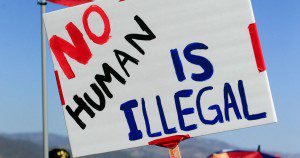On June 6th we learned that the Turkish government has charged one of its citizens “with insulting Islamic values in Twitter messages, the latest in a series of legal actions against Turkish artists, writers and intellectuals for statements they have made about religion and Turkish national identity.” (Turkish Pianist Is Accused of Insulting Islam) The official charge was “publicly insulting religious values that are adopted by a part of the nation.”
India has similar laws, and despite possessing a vibrant religious pluralism these have been used time and again to oppress Christians.
Recently the Pakistan government banned a twitter contest that might generate what it regarded as blasphemous content. (Pakistan Blocks Twitter) Blasphemy laws remain in Pakistan, as they do in Turkey and much of the Muslim world, as a constant threat hanging over religious minorities whose mere assertion of their right to speak their faith can be construed as an attack on Islam.
In a county like the US where freedom of speech, including offensive speech, is regarded as almost absolute this may seem strange, but as noted by Stanley Fish noted in a recent review (The Harm in Free Speech) words that attack the dignity of others may be regarded as causing public harm.
What is the difference between hate speech that attacks a person on the basis of gender, ethnicity, class, or region and blaspheme that attacks the beliefs and the religious leaders whom people hold most dear?
Fish offers the argument made by Jeremy Waldron’s new book, “The Harm in Hate Speech,” that hate speech creates an environment of hostility that cannot be overcome by an individual’s ability to ignore a racial slur or bigoted insult. In other words the harm isn’t the wounding of individual feelings, although that is real. The harm is to the person’s right to a dignified place in the larger society, an equal place with all other persons. Hate speech creates a public realm in which certain human beings can hardly function as free citizens because of the contempt and exclusion they are made to feel.
And this is where hate speech differs from blaspheme. Blaspheme laws do not protect the dignity of minority groups whose place in society is at risk. They seek to protect the religious sensibilities of the majority, giving them even more power in the public realm, and are used to further marginalize those who have different religious values and ideas.
Most importantly they provide governments a very convenient way to control public speech and harass political enemies. In a country like Turkey, or India, whose laws are so broadly drawn that any language that supposedly offends the values of any part of the nation is illegal, virtually any moment of public candor provides an excuse to arrest a political enemy.
Apart from the harm they do to human rights, laws that forbid “publicly insulting religious values” or make it a crime to contradict the dogmatic assertions of one or more religions are the arch-enemy of dialogue. Let us say, for example, that a Christian does not believe that Muhammad is a prophet – something quite logical from a Christian standpoint. To say this publicly has time and again been taken as an insult by Muslims for whom Muhammad’s status as a prophet is a core belief. And in most Muslim countries such a public assertion by a Christian would be treated as blaspheme. What if, in a dominantly Christian country, it was made illegal to deny that God is Trinity and Jesus is the Christ? The whole body of Jewish, Muslim, Buddhist, and Hindu discourse would be made illegal. Dialogue couldn’t even begin without the participants facing arrest.
As Waldron argues, there are legitimate reasons for a public discussion of restrictions on hate speech directed against already marginalized groups. But blaspheme laws, which simply further enshrine the power of the majority in the public sphere and provide a powerful tool for political oppression have no legitimate purpose, and are the enemy of dialogue and mutual understanding.











